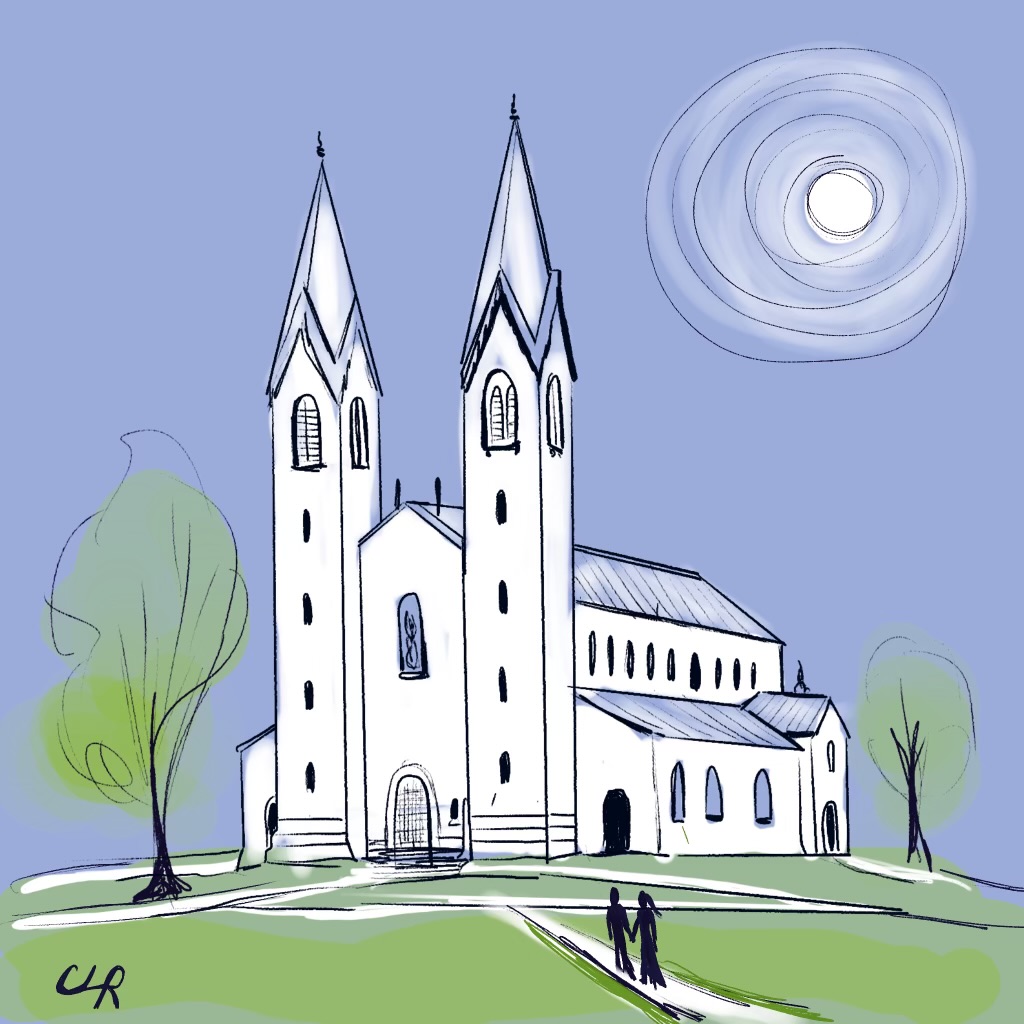Modeling the secular Bowdoin community off a Christian ideal
March 1, 2024
 This
piece represents the opinion of the author
.
This
piece represents the opinion of the author
.
 Lauren Russler
Lauren RusslerJohn Winthrop, lauded by the likes of Cotton Mather as the “Moses” of the American people, introduced what would soon become the American holy commandments in his sermon “A Model of Christian Charity.” He preached that “We must be willing to abridge ourselves of our superfluities, for the supply of others’ necessities…. We must … make others’ conditions our own … always having before our eyes our commission and community in the work, as members of the same body.”
That model sounds an awful lot like another term that feels much more familiar: the ‘Common Good.’ And come to think of it, isn’t there a ‘Winthrop Hall’ on campus? This isn’t a coincidence. Bowdoin College, founded and endowed for the common good, is a product of the puritanical ideals extolled by early American settlers at the outset of the formation of the American identity.
But since Bowdoin’s founding, the American identity has expanded beyond comprehension. Our rejection of the material world has been supplanted by the very vanities we once resisted—our modest chapels are now dwarfed by glistering skyscrapers. Whereas before one spent their sabbath worshiping God, one now bows before their TV and prays that Travis Kelce and Patrick Mahomes will score a touchdown.
All of this is to say that the tides of Christianity have receded. Bowdoin’s very own chapel exemplifies this decline, the building once having been a place for weekly mass and now mostly a place for concerts. Yet one organ of Christianity in that building still somehow flourishes: the McKeen Center for the Common Good.
In our shift towards a secular identity, we Americans seem to believe that we can pluck the charitable values from the Christian package and do away with the faith and the tradition. But can we really uphold Winthrop’s model of Christian charity—the common good—without the faith that fueled it?
At first glance the answer may seem to be a resounding yes. I was raised an atheist, but I have strong moral beliefs. And I bet that today’s Bowdoin students have much more extensive laundry lists of volunteering and social-impact work than any of our ancestors did.
Still, something feels off. I’m not sure that we embody the spirit of the common good as strongly as we once did. We might be quite kind to each other with our Bowdoin hellos, and we may enact positive change, but do you think most of us devote our education to helping others? Do you think we behave as though we are “members of the same body”? Do you think that we approach the common good with the fervor of a god-fearing Puritan? No, you probably don’t!
My fear is that our community enervates itself when we claim to unite around an ideal that we no longer share. Bowdoin is founded and endowed for the common good and we still admit students accordingly, but it doesn’t actually connect us. Do you see a random face on the quad and feel connected to it by a shared drive to dedicate yourself to your larger communities? Who’s raising a toast to the common good at Bolos?
Still, we seem to do more for the common good than ever. What gives?
I hold that as the Puritan faith receded, the institutions we built to uphold morality and the common good found something new to fuel them. The advent of liberalism as the predominant American political ideology marked the shift from a religious imperative to ‘do no harm’ and to ‘help thy neighbor’ to an individualist philosophy of mutual self-interest. Although we as a nation still claim to be “under God” we no longer understand ourselves as “members of the same body” and instead increasingly see ourselves as individual agents that have strategically banded together for our own sakes. The institutions upholding Winthrop’s model of Christian charity adapted to run off a hybridized mixture of individual self-interest and faith, instead of faith alone. These new passions compelled us to become better citizens than ever before.
Take tax write-offs as an example. When you donate to charity, you get your money back. Is that the Christian charity that John Winthrop refers to? Well … no. But it explains why the numbers suggest that our society is more charitable than ever.
This also explains why our student body is still so charitable. Bowdoin’s institutional goal is to cultivate students who will improve the world, which they do, just for other reasons. Many of the nonprofits we founded in high school really only ever came to be so that we could distinguish ourselves on college applications. Of course most of us still care about the common good—that desire just isn’t quite as dogmatic as our resumés suggest. This percolates into our educational model as well: an infographic in the philosophy department building boasts how high its majors’ mid-life earning rates are in comparison to other majors’.
It is hard to suggest that we should orient Bowdoin around an ideal that we are only partially committed to. The common good is an ideal that we can’t fully embody in spirit, nor is it one that could properly galvanize a campus culture on its own.
It would be nice to be wrong about this one.
Sincerely,
Aidan Sheeran-Hahnel
Comments
Before submitting a comment, please review our comment policy. Some key points from the policy:
- No hate speech, profanity, disrespectful or threatening comments.
- No personal attacks on reporters.
- Comments must be under 200 words.
- You are strongly encouraged to use a real name or identifier ("Class of '92").
- Any comments made with an email address that does not belong to you will get removed.

Weekly chapel talks on Friday was a thing from ’88 to ’92. I went a few times for sure.